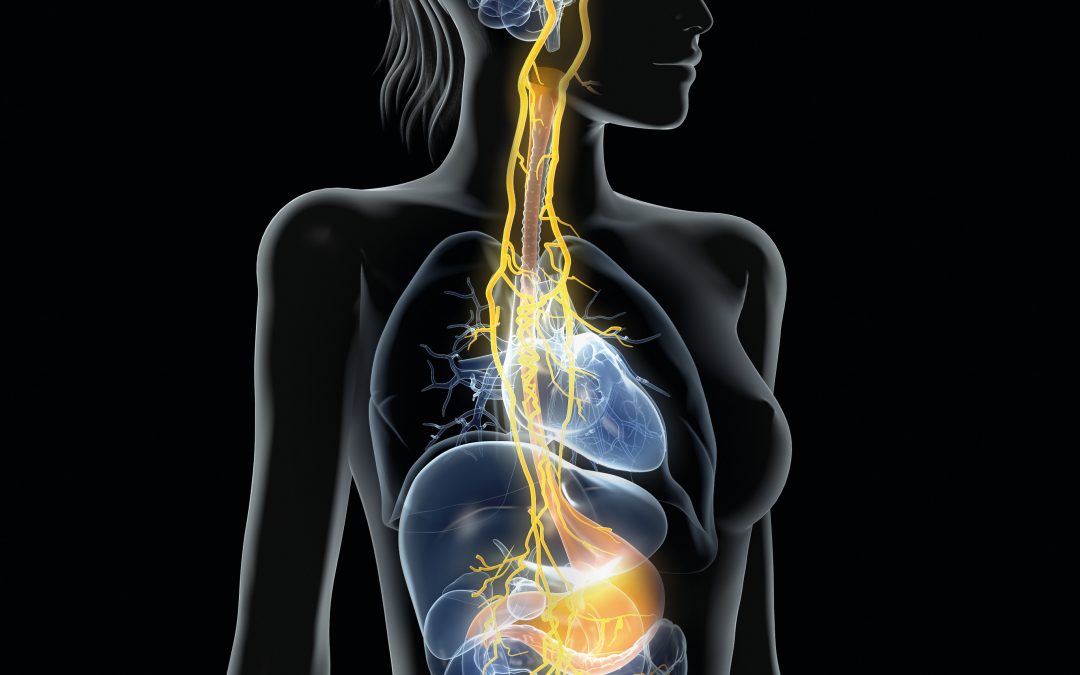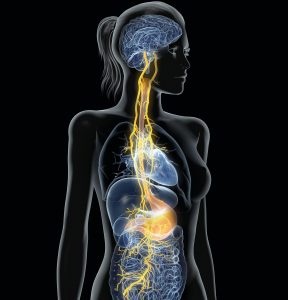
by Leslie Moldenauer | | Body, Essential Oils, Uncategorized
Reclaiming balance and joy through nurturing the feminine essence is a transformative journey that many women embark on in today’s fast-paced world. In this exploration of the delicate interplay between feminine and masculine energies, we delve into the reasons behind widespread burnout and offer practical insights.
Discover actionable exercises, journaling prompts, and self-care practices to guide women back to their authentic selves. Learn how incorporating products like magnesium lotion can enhance this journey, providing a holistic approach to well-being and reclaiming the beauty of the feminine spirit.
Life Can be a Blur
In our fast-paced world, where the demands of daily life often leave us feeling drained and overwhelmed, the delicate balance between feminine and masculine energies can be easily disrupted as women wear many hats and take on all.the.things!
This is not about boys not crying or girls not playing in the dirt, both of which are BS.
Modern society often celebrates qualities associated with masculine energy, such as productivity, competition, and achievement, while undervaluing feminine energy’s nurturing, intuitive, and creative aspects. Consequently, many of us are caught up in a perpetual cycle of burnout as we strive to meet unrealistic expectations, neglecting our need for rest and self-care.
We all have both energies within us, and it is in that balance that we feel at peace. That balance does look different for everyone, as we are all unique and beautiful beings. For women, being out of balance with these energies may make you feel like things are out of your control, and externals constantly force you to prioritize work over your self-care.
Did that hit hard?
Are you guilty of saying to yourself..” After xyz, I will slow down?”
Do you feel responsible for others’ happiness or healing?
Have you tackled your to-do list/priorities with gusto (adrenaline) and then felt exhausted afterward, possibly feeling guilty for taking that rest? We are in an era perpetually ruled by the masculine. Do more, work harder, and fix the world’s (friends/family/coworkers) problems.
I am NOT saying women should not hold power or have leadership roles. We clearly can do anything we set our minds to. Embracing the essence of femininity involves integrating qualities such as receptivity, yielding, flow, and embracing cyclical patterns. It calls for a spirit of collaboration and the willingness to acknowledge and embrace the depths of the unknown.
When to ask for help. When to rest. When to surrender. Balance is only possible, and the result will eventually be some form of burnout.
This article explores the importance of reconnecting with feminine energy, particularly for women. It offers practical exercises, journaling prompts, and incorporating self-care products like magnesium lotion and herbal tinctures to foster a return to balance, joy, and wellbeing.
Nurturing the Feminine Essence
Mindful Exercises
Mindfulness is not an elusive state reserved for meditation experts; it is a practical and accessible skill anyone can cultivate. It involves intentionally directing our attention to the present and acknowledging thoughts and feelings without becoming overwhelmed. This practice encourages a non-reactive and compassionate stance towards ourselves and our world.
Try practicing a few activities that connect you with your body and emotions. Practices like yoga, dance, or mindful breathing can help you ground yourself in the present moment and tap into your feminine energy.
Start with Breath Awareness
Begin your mindfulness journey by focusing on your breath. Take a few moments each day to observe your breath without trying to change it. Pay attention to the sensations of each inhale and exhale, grounding yourself in the present moment. Feel the sensations in your body. Pick one and observe it—pain, tingling, tightness, etc.
Mindfulness shifts you out of your sympathetic nervous system—fight, flight, freeze—into your parasympathetic nervous system- rest and restore.
Embrace the Senses
Engage your senses by intentionally tuning in to the sights, sounds, smells, tastes, and textures around you. Whether savoring a meal, feeling the warmth of sunlight, or listening to the rustle of leaves, immersing yourself in sensory experiences fosters mindfulness. Practice this, then sit quietly and notice how you feel before returning to a task in your day.
Set Mindful Moments
Dedicate specific times during your day to engage in short mindfulness exercises. This could be as simple as a three-minute breathing exercise or a brief body scan. These intentional breaks create pockets of calm and clarity amid the busyness of daily life.
Nonjudgmental Awareness
Observe your thoughts without attaching judgment. Allow thoughts to come and go, acknowledging them without getting caught up in an evaluation cycle. Cultivating a nonjudgmental mindset fosters a sense of acceptance and presence, which is especially helpful during conversations with others.
Practice attentive listening during conversations. Instead of formulating responses in your mind, genuinely focus on the words spoken, the tone, and the emotions conveyed. This fosters genuine connection and enriches your interpersonal relationships.
Journaling for Self-Discovery
Create a sacred space for self-reflection through journaling. Explore your thoughts and emotions, unraveling the layers of your experiences. Use prompts like “What brings me joy?” or “What activities make me feel most connected to my authentic self?” to guide your reflections.
Rob Dial, aka The Mindset Mentor, has an excellent system for journaling if you are unsure where to begin (Not an affiliate). Follow this link for more https://www.dialedinjournal.com/training2
Embracing Joyful Pursuits
Identify activities that bring you genuine happiness and make time for them regularly. Whether reading, painting, gardening, or simply taking a leisurely walk, these moments of joy replenish your feminine energy and contribute to your overall wellbeing.
Try this prompt, which I have been doing yearly for nearly a decade: Write down what brings you joy! Take at least 20 minutes for this exercise. You will stall and hit walls where you think you cannot possibly think of anything else. Keep pushing through the entire 20 minutes. It may seem silly now, but I do this in hopes of seeing how I am doing in inserting as much joy into my life as possible. This may be a great barometer for you as well.
Connecting with Self-Care Products
Magnesium Lotion
Magnesium lotion is one example of a potent ally in fostering a connection with the parasympathetic nervous system, often called the “rest and digest” system.
Magnesium, a crucial mineral for overall wellbeing, promotes relaxation and tranquility. As this soothing lotion is absorbed through the skin, it facilitates the replenishment of magnesium levels, prompting a cascade of physiological responses that activate the parasympathetic nervous system. This activation triggers a state of calmness and balance, helping to alleviate stress, tension, and anxiety.
By incorporating magnesium lotion into your self-care routine, you nourish your skin and create a pathway to tap into the profound restorative capacities of your parasympathetic nervous system, allowing for a more serene and centered existence amidst life’s daily demands. Click through to learn more!
You can change the script!
Reclaiming the beauty of feminine energy is essential for personal wellbeing and breaking free from the burnout cycle. By incorporating mindful exercises and journaling, you can rediscover the joy and balance of embracing your authentic feminine essence.
Remember, the key lies in honoring and nurturing the unique qualities that make you a woman, allowing your light to shine brightly in a world that desperately needs the harmonious dance of feminine and masculine energies.
Be well, Leslie
The Lost Art of Breathing: Why Have we Forgotten?
Nutritional Approaches to Stress and Anxiety

by Leslie Moldenauer | | Body, Essential Oils
In the ever-evolving world of wellness, cannabinoids have taken center stage. CBD, with its fan-following for pain relief, has become the cool kid on the block. But have you heard about CBG? It’s like the unsung hero of the cannabinoid crew, quietly making waves in the realm of inflammation and pain relief. In this short piece, we’ll dive into the world of CBG for pain sufferers.
Unveiling CBG’s Benefits
CBD may have stolen the spotlight, but CBG (cannabigerol) is emerging as the rising star with its unique benefits. While CBD primarily interacts with the endocannabinoid system, CBG takes a different route. It influences the CB1 and CB2 receptors, known for their roles in pain perception and inflammation regulation (Turcotte et al., 2016).
CBG vs. CBD: The Showdown
Let’s set the stage for a friendly face-off between CBG and CBD in the arena of pain relief. CBD, known for its versatility, has been a go-to for many seeking a natural remedy. However, CBG is stepping up, offering potentially more potent anti-inflammatory and analgesic effects. Think of it as CBD’s cool cousin with a knack for turning down the volume on pain.
The Entourage Effect
Now, don’t get us wrong – CBD is fantastic. But here’s where CBG adds its flair to the mix. When combined with CBD and other cannabinoids, CBG contributes to what’s known as the entourage effect, much like we often talk about with the synergy of both essential oils and herbs. This synergistic collaboration enhances the overall therapeutic impact, making the combination greater than the sum of its parts. It’s like a cannabinoid dream team working together to fight pain and inflammation.
CBG: The Underdog in Research
While CBD has been in the limelight for a while, CBG is still the underdog regarding research. However, preliminary studies on CBG are promising. Research suggests that CBG may be a powerful ally in managing conditions like chronic pain, inflammation-related disorders, and even neurodegenerative diseases.
You can read more here https://www.ncbi.nlm.nih.gov/pmc/articles/PMC8467477/ and here https://www.verywellmind.com/cannabigerol-cbg-uses-and-benefits-5085266
A Breath of Fresh Air for Chronic Pain Sufferers
For those grappling with chronic pain, CBG could be a breath of fresh air. Its potential anti-inflammatory properties make it a compelling option for arthritis and muscle spasms. Imagine saying goodbye to the daily struggles and welcoming relief from the clutches of persistent pain – that’s the promise CBG brings to the table.
CBG: The Gentle Giant
What sets CBG apart is its gentle nature. Some users report that CBG doesn’t induce the same sedative effects as certain pain medications or even CBD. It’s like the gentle giant of the cannabinoid family – providing relief without the unwanted side effects that often accompany traditional pain management solutions.
As CBD continues to dominate the wellness scene, CBG is quietly but confidently stepping into the spotlight. While more research is needed to understand its potential fully, early signs suggest that CBG could be a game-changer in pain relief. So, if you’ve been on the CBD train and are open to trying the next big thing, give CBG a friendly nod – your body might thank you for it. Here’s to exploring the uncharted territories of cannabinoids and finding the relief you deserve!
References
Kogan, N. M., Lavi, Y., Topping, L. M., Williams, Richard. O., McCann, F. E., Yekhtin, Z., Feldmann, M., Gallily, R., & Mechoulam, R. (2021). Novel CBG derivatives can reduce inflammation, pain and obesity. Molecules, 26(18), 5601. https://doi.org/10.3390/molecules26185601
Ohwovoriole, T. (2023, June 12). What is Cannabigerol (CBG)?. Verywell Mind. https://www.verywellmind.com/cannabigerol-cbg-uses-and-benefits-5085266
Turcotte, C., Blanchet, M.-R., Laviolette, M., & Flamand, N. (2016). The CB2 receptor and its role as a regulator of inflammation. Cellular and Molecular Life Sciences, 73(23), 4449–4470. https://doi.org/10.1007/s00018-016-2300-4
Learning How our Body Reacts to Chronic Stress

by Leslie Moldenauer | | Body, Mind, Uncategorized
A mere decade ago, holistic medicine largely overlooked the intricacies of endocrine challenges the thyroid or adrenal glands pose. Nearly all dis ‘ease’ can be linked to the endocrine system, so we must address issues early on. Exhaustion has long been a mother’s companion throughout history, given the monumental tasks they shoulder. Yet, today, crippling exhaustion is not just a commonplace feeling but a serious issue linked to widespread endocrine weaknesses. Why are we all so exhausted?
Many women endure debilitating exhaustion beyond the ordinary tiredness, and those who don’t experience it may dismiss it as mere fatigue. However, the reality is far more profound. Allopathic medicine is lagging in addressing this matter adequately, and many scoff at the term adrenal fatigue altogether. Doctors often resort to blood tests, providing a limited perspective on endocrine health. Thyroid tests may yield average results, leaving many women frustrated and dismissed, with their symptoms labeled as psychological.
Ladies, how often have you been told it is all in your head?!?!
The United States, unfortunately, ranks high in stress levels due to its demanding work culture. Shockingly, working mothers in the U.S. receive a pitiful six weeks of paid leave after childbirth, compared to European countries offering up to 20 weeks. Moreover, 85.8% of males and 66.5% of females in the U.S. work over 40 hours per week, making it the most overworked nation globally. Vacation time is often not even taken. In the United States, a concerning trend persists where many Americans do not take advantage of their vacation time. How can this be?
Despite having earned time off, many individuals either forgo their vacations altogether or hesitate to use the full extent of their allowed leave. This phenomenon is caused by workplace culture, fear of falling behind in workload, being seen negatively by coworkers, and the relentless pursuit of professional success. Unfortunately, this lack of vacation utilization increases stress, burnout, and potential long-term health issues, emphasizing the importance of promoting a healthier work-life balance for overall well-being.
Living through a pandemic has been like enduring a never-ending storm, triggering our primal fight, flight or freeze responses day after day. The persistent uncertainty, the constant adaptation to new norms, and the relentless news cycle create a background hum of stress that keeps our bodies alert. It’s a survival mode that, over time, takes a toll on our mental and physical well-being. Living in the freeze of those moments of uncertainty where we feel paralyzed by the weight of it all is a survival dance that we’ve all been part of for years, and it has left many feeling emotionally drained and physically exhausted.
As we age, many begin to see that they wish they could go back in time and make the changes needed to benefit their physical and mental wellness before it is too late. To address this alarming issue, a holistic approach is imperative. The endocrine system, encompassing various glands like the thyroid, adrenal, and pituitary glands, plays a crucial role. The thyroid, often called the body’s master metabolic control center, influences vital functions such as brain, heart, and kidney function, body temperature, growth, and muscle strength.
Recognizing the symptoms of adrenal fatigue is vital, as it often follows thyroid issues. Exhaustion beyond the norm, cravings for salty foods, difficulty concentrating, trouble sleeping, feeling that proverbial second wind in the evenings, heart palpitations, weight gain, and recurrent colds indicate adrenal weakness (not an all-inclusive list). Understanding these signs is crucial for seeking proper medical attention.
Exercise
Addressing the root causes involves lifestyle adjustments. Reducing cardiovascular activity and incorporating burst training, yoga, weight training, and walking is advisable. While diet and exercise culture tells us that cardiovascular exercise is king, cardiovascular training, like running, taxes the adrenal glands further. When weakened, our adrenal glands need to focus on less cortisol, and cardio floods the body with cortisol. Ideally, with each piece of burst training, you must allow your heart rate to come down before beginning again. If you need time to recover from cardio or it leaves you feeling totally depleted, your body is telling you it needs your attention.
Nutrition
Nutrition plays a pivotal role in the health of our endocrine system; maintaining balanced sugar levels through quality protein and fat while avoiding refined carbohydrates is crucial. Avoiding all grains is ideal, as is eating vegan while consuming healthy fats such as nuts and seeds, avocados, and coconut. If meat is a must, organic, pasture-raised is essential. Avoid farmed fish and conventional meat due to their high level of toxicity.
Eating smaller, frequent meals is recommended, especially during advanced stages of endocrine deficiencies. In addition, depending on your deficiency stage, there may be challenges absorbing nutrients due to a leaky gut phenomenon. Liquid vitamins are a great idea during this time. A few things you want to be sure you are getting in your daily diet are magnesium, zinc, complex B vitamins (especially B6), and a quality multivitamin while working on your gut health.
Stress and Sleep
Sleep is critical to recovery and establishing a consistent sleep routine. Teatime rituals, avoiding electronic devices before bedtime, and incorporating calming herbs like passionflower, lemon balm, and lavender can promote relaxation. Lifeholistically has a tincture that addresses the issues of sleep and stress called Happibliss. It is made from experience and intention. Magnesium lotion is also beneficial for sleep, aches, and pains and is advantageous to a healthy endocrine system.
My Abbreviated Story
I write all of this for complete transparency from a place of experience. If you want to get your adrenals tested, know that a one-period-in-time blood test is not the test you need. A blood test will not give you an accurate representation of the health of your adrenal glands throughout the day. I decided to share my test results from 2015 to show you where I was and where I stayed for a few years before restoring my health (they were scary times).
It took time, working with a specialist in California, a lot of emotional work, proper nutrition, and leaving behind many things. Many years later, I am armed with so much more knowledge and can now see things I did not see back then that kept me in a place of insufficiency. You can turn things around by being very health-focused and having radical honesty with yourself.
20240105_084328
Understanding the Results
Ideally, the body should wake in the morning with the highest cortisol level through the four measured times so you are awake feeling refreshed and ready to take on the day and will slowly do down, with the lowest reading being at the end of the night for restful sleep. The 13.4-24.0 nM/L range is the first reference range, and my results show 6.2 nM/L. From there, you can read on down.
I was dangerously low to where I felt like I was a dead weight the entire day. The best example I can give is that it felt as if there were cement blocks tied to my wrists and feet. If you are feeling this way day after day, it is time to pay attention and take action.
Aromatherapy
Aromatherapy offers a soothing pre-sleep ritual with a carefully crafted diffuser blend containing lavender, marjoram, ylang-ylang, and neroli. Studies show that this blend lowers cortisol levels, which is needed for quality sleep (Kim et al., 2012). Throughout the day, you will likely need something to give you a pick-me-up and, during times of higher stress, something entirely different. If you need assistance, I will share what worked for me and complete custom blending based on experience and science. Reach out at Lifeholistically@gmail.com
Self-Care
Managing stress involves accepting, removing unnecessary responsibilities, and avoiding self-imposed “shoulds.” Prioritizing self-care must be balanced. It’s an ongoing process, requiring education on essential oils, cautious use, and a commitment to well-being. While not a substitute for professional medical advice, these suggestions empower individuals to take charge of their health and well-being.
In conclusion, overcoming exhaustion, stress, and burnout is multifaceted, but it explains why we are all so exhausted. To do this, one must not only look at diet and exercise, but self-care and emotional burdens are also a big piece of the picture. This holistic approach, tailored to individual needs, emphasizes the importance of self-care, acknowledging the unique challenges faced by each person.
Reference
Kim, I.-H., Kim, C., Seong, K., Hur, M.-H., Lim, H. M., & Lee, M. S. (2012). Essential oil inhalation on blood pressure and salivary cortisol levels in prehypertensive and hypertensive subjects. Evidence-Based Complementary and Alternative Medicine, 2012, 1–9. https://doi.org/10.1155/2012/984203
How to Find Balance Together During the Covid Pandemic
How can we use Holistic Therapies During Difficult Times

by Leslie Moldenauer | | Body, Mind
How are our bodies affected by stress while we sleep? Do you have trouble not sleeping well, and not feeling the greatest during the day? I am talking about ailments not necessarily caused by taking too long to fall asleep or waking up in the middle of the night but identifying things that are happening to our bodies while we sleep when we carry too much stress throughout the day.
Stress While We Sleep
This statement may be a bit abstruse, but it is odd to think that once we fall asleep the stress of the day melts away, right? Not only does it hang around, but it also wreaks havoc on our bodies and our brain.
Musculoskeletal System
How are our bodies affected by stress when we sleep is the question of the day? Have you ever woken up in the morning to muscle pain and discomfort? Have you chalked it up to aging and joke that you pulled your back out while you slept? I have said this too, but here is a big reality–stress has a dramatic effect on our musculoskeletal system. Stress causes our muscles to contract due to decreased blood flow. So, when we are dealing with chronic states of stress that are not addressed in some way during your waking hours, you go to bed and your muscles do not relax as you would expect them to. Over time, you can have an increased likelihood of muscle cramping and injury, migraines, chronic neck pain, temporomandibular joint pain (TMJ), and low back/hip dysfunction. It is sobering to think that many of your daily aches and pains are due to not addressing stress during your waking hours and are exacerbated during your sleeping ones.
I am no stranger to this phenomenon, and it took me doing a little bit of digging to open my eyes to it. I am a fantastic sleeper. Even when my adrenals are fritzing, sleep comes easily. Pain also seemingly comes easy. I deal with some type of pain on a daily basis and making a few changes has really helped. More on those in a minute.
Inflammation and our Brain
You may have cringed when you read the word inflammation, but alas it is true. Chronic stress results in chronic inflammation in the body. The first concerns with these levels of inflammation point back to pain, but also heart disease and diabetes. Here is another very concerning phenomenon. Our blood-brain barrier usually does a fantastic job at keeping the inflammatory molecules from passing to the brain, but chronic stress and increasing levels of inflammation break it down. A great analogy for this is a dam. The dam represents your blood-brain barrier, but a great force and volume of water could break the dam. Now the inflammatory molecules are slowly leaking into the brain. What does this mean for us?
Studies show that the first part of the brain to be affected is the hippocampus. This area of our brain is linked primarily to learning and memory, and increased inflammation causes trouble with memory…hello foggy thinking, causes issues with mental agility, what did I come in this room for? Other troublesome side effects can be a lack of motivation and concerns regulating mood. Unfortunately, this points to an increased risk of depression.
HPA Axis
Our hypothalamus-pituitary-adrenal axis is series of interactions between endocrine glands in the brain and on the kidney, it is a classic feedback loop very similar to the HVAC system in our home. The HPA axis is the feedback loop that controls your body’s reaction to stress. In laymen’s terms, the HPA axis is activated under stress, and cortisol (stress hormone) is released into the bloodstream. Cortisol is priming your brain and body for action, so you are ready to slay the dragon, or run away fast. High levels of cortisol sadly affect every system of our body over time when it is not managed, and as our HPA axis becomes dysregulated, or the feedback loop has a disconnect, things begin to go astray. HPA axis dysfunction also causes issues with the hippocampus and our endocrine system as a whole begins to struggle.
These are just a few of the ways that our bodies are affected by stress when we sleep. I know this all seems daunting, but if your address your stress, and do not bypass it during your waking hours, you can in fact have the kind of sleep that your body needs. Our body is meant to regenerate and heal. More specifically, our brain releases melatonin which helps you fall asleep and stay asleep. While you are in slumberland, your pituitary gland releases growth hormone which encourages growth and repair.
You may sleep well, but if your HPA axis is not functioning, your muscles remain contracted, and you have high levels of inflammation in your body and brain….you are still far from optimal health.
Aim for 7-8 hours “they say”, but I would like to take that a bit further.

Answer the 911 call
- Having a good diet is imperative. I am not advocating that you go on a diet, I am advocating that you remove inflammatory foods like dairy, conventional meat, and all preserved foods. Have allergies? Feel really cruddy after eating specific foods? Try an elimination diet. What you put in your mouth goes a long way to your overall health.
- Stress, especially the chronic variety, needs specific things such as vitamin C and magnesium just to name a few. I take magnesium citrate every night one hour before bed to help my muscles to relax during sleep, and I combine this with stretches via a mini stretch sesh session or some time on my yoga mat.
- Additionally, I take herbs in various forms such as ashwagandha, milky oat, Schisandra berry, and a few others. Follow the links here and here to learn more about herbs that can help you.
*Always complete your own research to make sure that these herbs are right for you.
- Utilize Apps on your Phone
The pandemic of 2020 propelled the phone app Calm to new heights. April of 2020 the app surpassed 1.6 million downloads, and the app is completely worth the yearly cost of approximately $60. I utilize Calm at least once a day to meditate. There are also tools to help you perform deep breathing techniques as well as masterclasses to help you learn new tools. These tools help the brain create new neuron pathways and connections, also called neuroplasticity. These new tools help you slay stress levels and bring more mindfulness into your day. Ding-Ding…this means an increase in healing for the body while you are asleep.
Headspace is a close second in my book, the free version is quite impressive. You can utilize their free classes, listen to calming music, and even exercise with free yoga classes or mindful cardio.
A few other apps that I have tried and recommend are Insight Timer, FitOn, The Mindfulness App, and Buddhify.
- Bring more joy into your day by utilizing a few exercises found here.
There is no one size fits all for reducing or at best coping better with stress so that our bodies function optimally and repair as expected while we sleep. If you are struggling like millions of others, please keep the option open to ask for help when needed. This shows strength, don’t let anyone tell you otherwise. ❤️
Want to read more about stress? I am a bit of a self-proclaimed expert…lol…funny, not funny.
Read on my friends…
Mom….Are you Taking Time to Truly Rest?
Breathing Exercises to Calm Children of All Ages
My Tips to Avoid Emotional and Physical Burnout
Like so many practices in life, I encourage you to become educated on the proper use of essential oils. When using them, please do so cautiously, understanding that there is often misinformation on the internet. You can be assured that I support only educated and proven resources. While essential oils should not be feared they should be respected and used properly to ensure the safety of the individuals using them.
Please note that I am not a medical practitioner. The content of this website is provided for general informational purposes only and is not intended as, nor should it be considered a substitute for, professional medical advice. Do not use the information on this website for diagnosing or treating any medical or health condition. If you have or suspect you have a medical problem, promptly contact your professional healthcare provider. By using this website, you assume full responsibility and liability for your own actions.
Resources
Do you have brain inflammation? How to know and what to do. (2021, January 20). Retrieved April 24, 2021
How stress affects your brain (in TED-Ed GIFs). (2016, March 14). Retrieved April 24, 2021

by Leslie Moldenauer | | Body
Have you been struggling to cope with life’s pressures and are exhausted all of the time? Are you not sleeping well? Stress affects us in many different ways. The good news is that we are not meant to handle all the heavy information thrown at us daily, so feeling this way is entirely understandable. The good news is there are nutritional approaches to stress and anxiety that we can adopt into our day-to-day lifestyle that can help bolster our ability to cope.
When under stress, our sympathetic nervous system (SMS) remains on high alert. Our SMS is our fight, flight, freeze response, and is activated under stressful events. When our central nervous system is solid and robust, our SMS reacts to the stressor, then recovers relatively quickly when the event has passed. Unfortunately, chronic stress over time tends to short circuit our SMS, and the response time to get back to homeostasis takes longer. Over time it becomes more challenging to recover. The relaxation response is the other side of our central nervous system (CNS), called the parasympathetic nervous system (PNS). The PNS is also known as rest and restore and is activated after a stressor as expected and when we work at it using deep breathing, meditation, or a nice hot bath. When our CNS is robust, we can easily tap into our PNS. When overwhelmed, not so much.
All of a sudden, the little things become the big things. You find that your patience has waned, and nearly everything triggers the fight or flight response. Frazzled tends to be the mood of the day, and even saying the word stress increases your heart rate.
For further reading on our central nervous system, go here.
Our vagus nerve plays a large part in the health of our CNS. Read more about that here.
Deep breaths…..and read on.
When we sit on a low simmer of stress at all times, our bodies leech nutrients that help us cope; therefore, we need to look to add them into our day. A few of those are B complex vitamins, vitamin c, magnesium, zinc, and iron.
There are some foods that you can look to add to your plate during the day (read more here), but to get what you need, supplementation may be necessary. The good news here is that herbs are a fantastic source of these nutrients.
Herbs to Look Into
Milky Oat Tops (Avena Sativa) This herb/grass, which is picked at a particular time in its growth, is rich in magnesium, B vitamins, calcium, iron, and more. Milky oat nourishes us when we are under stress and is thought to benefit when mentally exhausted.
Passionflower (Passiflora incarnate) is a gorgeous flower, and it is beneficial to calm the mind. Scientists believe passionflower works by increasing a chemical called gamma-aminobutyric acid (GABA) in the brain (Healthline, 2018). GABA then influences dopamine activity in the brain, the neurotransmitter responsible for how we feel pleasure and happiness. If dopamine levels or too low, issues can arise, such as anxiety or depression (WebMD, 2019).

Passionflower is a beautiful herb for anxiety, but there are a few contraindications. This herb is not for anyone who is currently pregnant or breastfeeding. If you are already taking sedating medications, avoid passionflower in your cup, or you could greatly intensify the effects of your medication. If this does not apply to you, you can try passionflower in dried or tincture form.
Lemon balm (Melissa officinalis) in your tea is a must for relaxation of body and mind. Fun fact! In Germany, lemon balm is licensed as a standard medicinal tea for sleep disorders (Blumenthal, 2000). Lemon balm is rich in vitamin C and thiamine, a B vitamin that has shown new promise to combat the adverse effects of stress (New Brain Nutrition, 2019).
The essential oil, typically sold as Melissa, is impressive too, but rather costly. Many do not know that it takes quite a lot of plant material to fill that bottle, so I recommend using the herb to calm before bed.
Roman Chamomile (Chamaemelum nobile) If there is a nighttime ritual that I can get behind, it is an evening cup of herbal tea to unwind and support a refreshing night’s sleep. As previously mentioned, everyone reacts to chronic stress differently. Stomach upset is a common reaction so that chamomile tea can do double duty for you.
*Use caution if you have an existing ragweed allergy or hay fever; chamomile may also affect you.
Ashwagandha (Withania somnifera), the root is classified as an adaptogen, meaning that it helps our body manage stress. Ashwagandha is an herb I swear by. One 6-week study published by the Indian Journal of Psychiatry showed participants who took ashwagandha root extract reduced their anxiety by 88%.
These are just a few of the herbs that I have incorporated into my wellness routine. I always recommend completing your research before adding something to yours to be sure it suits your constitution.
People have been taking herbs for thousands of years to support their emotional wellbeing. Herbs provide unique nutritional approaches to stress and anxiety. Just remember, you need to put in the work to activate your PNS as often as possible. Herbs are but a piece of the puzzle to your ultimate wellness.
Like so many practices in life, I encourage you to become educated on the proper use of essential oils. When using them, please do so cautiously, understanding that there is often misinformation on the internet. You can be assured that I support only educated and proven resources. While essential oils should not be feared they should be respected and used properly to ensure the safety of the individuals using them.
Please note that I am not a medical practitioner. The content of this website is provided for general informational purposes only and is not intended as, nor should it be considered a substitute for, professional medical advice. Do not use the information on this website for diagnosing or treating any medical or health condition. If you have or suspect you have a medical problem, promptly contact your professional healthcare provider. By using this website, you assume full responsibility and liability for your own actions.
References
Blumenthal, M. (2000). Herbal medicine: expanded commission e monographs. Austin: American botanical council. (pp. 230-232)
Depression, aggression, and Vitamin B1 Thiamine supplements as a new treatment. (2020, May 15). Retrieved April 06, 2021, from https://newbrainnutrition.com/depression-aggression-and-vitamin-b1-thiamine-supplements-as-a-new-treatment/#:~:text=As%20emotional%20stress%20is%20associated,stress%20%5B2%2C%203%5D
Dopamine: What it is & what it does. (n.d.). Retrieved April 06, 2021, from https://www.webmd.com/mental-health/what-is-dopamine#:~:text=Dopamine%20is%20a%20type%20of,in%20how%20we%20feel%20pleasure
Passionflower. Retrieved from https://www.healthline.com/health/anxiety/calming-effects-of-passionflower

by Leslie Moldenauer | | Body, Mind
Dealing with intense emotions leaves our central nervous system on high alert leaving our vagus nerve weak and unbalanced. What is the connection between our vagus nerve and our central nervous system?
Life has brought more than the typical challenges over the last few months, for all of us. And while our stories are very different, the emotions can be very similar. Fear, uncertainty, exhaustion, and even though many of us have been invited to slow down, our nervous systems have other plans. It is important to really feel them, acknowledge them, unpack them, and look them in the eye.
“We cannot selectively numb emotions, when we numb the painful emotions, we also numb the positive emotions.”― Brené Brown, The Gifts of Imperfection
I have a history of adrenal fatigue and exhaustion, so I have to be hyper-aware of my endocrine health and use all of the tools at my disposal to stay on top of any challenges that come up, and that includes not ignoring anything.
I have spoken a great deal about the branches of our nervous system on social media, those being the sympathetic nervous system (SNS) and our parasympathetic nervous system (PNS).
The SNS, which can help to keep us out of danger, is very important. This is the fight-flight-freeze mechanism of our nervous system. Most of us are stuck in freeze mode as of late, which means our cortisol is always high, and as a result we have a deep level of heaviness and exhaustion. This is termed our allostatic load or in most of our cases overload, which is the wear and tear on our body and mind when under chronic stress.
When we are stuck in freeze mode, it becomes harder and harder for our nervous system to switch over to the parasympathetic system of rest and restore, and this is not a good thing.
A piece of this that is not often talked about is our vagus nerve. The vagus nerve is the 10th cranial nerve with impressive length and function, running from the brain all the way down to the abdomen.
Brain…check
Pharynx…check
Lungs…check
Heart…check
Esophagus…check
Stomach…check
Gallbladder…check
Pancreas…check
Small intestine…check
YES…..the vagus nerve acts on all of these. And when we are dealing with anxiety and depression, strengthening or toning the vagus nerve is a great place to start to begin to heal.

What does that mean you ask?
Toning the vagus nerve is essentially balancing the SNS and PNS. All along the vagus nerve you will find enteric nerve fibers, or our enteric brain. This is really fascinating stuff, the connection from the brain to the gut is essentially working like a 2-way radio. When working well, toned and strong, the communication going both ways is strong and clear. When it isn’t, the radio goes on the fritz.
This is a rudimentary analogy but an accurate one.
Stimulating the vagus nerve is something we should all be doing. A recent study published in 2018 by the Frontiers in Psychology states that there is preliminary evidence that vagus nerve stimulation is a promising add-on treatment for treatment-refractory depression, posttraumatic stress disorder, and inflammatory bowel disease. Treatments that target the vagus nerve increase the vagal tone(1).
You can Google various ways to tone the vagus nerve, but my favorite by far is deep breathing while creating a vibration in the throat (crossing the vagus nerve in the pharynx) through sound therapy.
This works for two reasons. When under high levels of stress and anxiety, we tend to shut down energetically, we stop moving, hunker down and curl up, slump our shoulders forward closing off our heart, and in the process, our SNS is lit up like a light bulb.
When we perform deep breathing and chanting, we are forced to shift over to our PNS system while we are stimulating the vagus nerve.
Singing, humming, chanting, and even gargling stimulates the nerve. Now we cannot gargle all day, but we can incorporate the others quite easily.
Most of take anywhere from 10-15 breaths in one minute. Try to consciously get the number down to 6 breathing deep into the diaphragm. Once you have mastered that, add a hum throughout the length of every exhale. Close your eyes and feel the vibration in your throat, face, and head.
This is just the beginning. I have found a way to incorporate a number of therapies for a powerful way to bring calm quickly, keep the PNS engaged while rewriting limiting beliefs.
My next online course, From Healing to Thriving, Reform your Inner Critic to Ignite your Inner Wisdom is a powerful 4 module course that targets this practice as well as many other engaging exercises to become the best you that you can be.
The launch is set for mid/end of June. If you are interested in being a beta tester (spaces are limited), reach out at Lifeholistically@gmail.com.
Like so many practices in life, I encourage you to become educated on the proper use of essential oils. When using them, please do so cautiously, understanding that there is often misinformation on the internet. You can be assured that I support only educated and proven resources. While essential oils should not be feared they should be respected and used properly to ensure the safety of the individuals using them.
Please note that I am not a medical practitioner. The content of this website is provided for general informational purposes only and is not intended as, nor should it be considered a substitute for, professional medical advice. Do not use the information on this website for diagnosing or treating any medical or health condition. If you have or suspect you have a medical problem, promptly contact your professional healthcare provider. By using this website, you assume full responsibility and liability for your own actions.
Reference
(1) https://www.ncbi.nlm.nih.gov/pmc/articles/PMC5859128/
STRESS! Recognizing when your Nervous System is Dangerously Overactive












